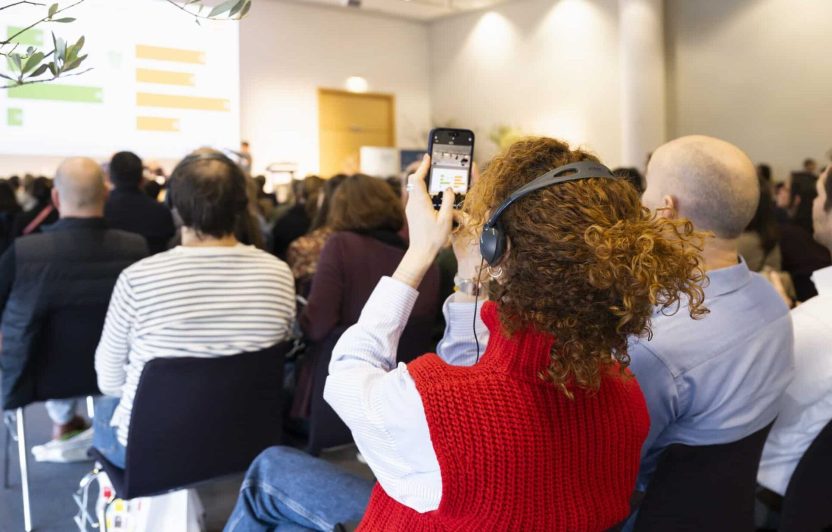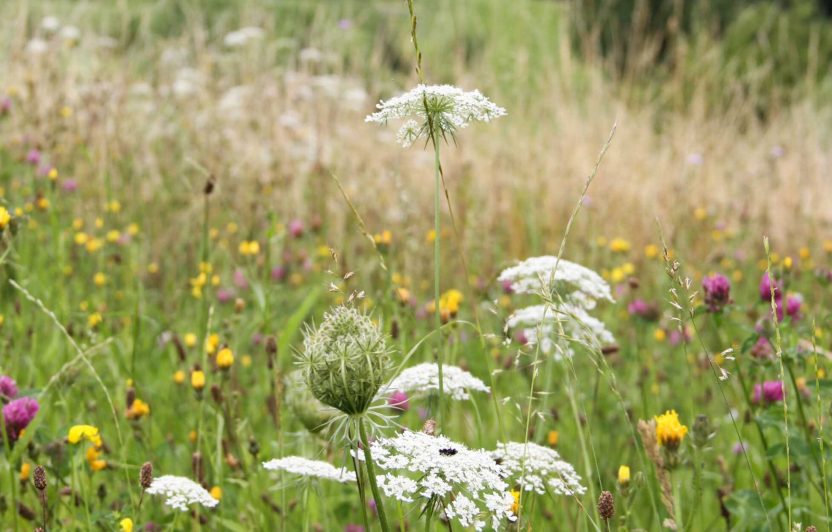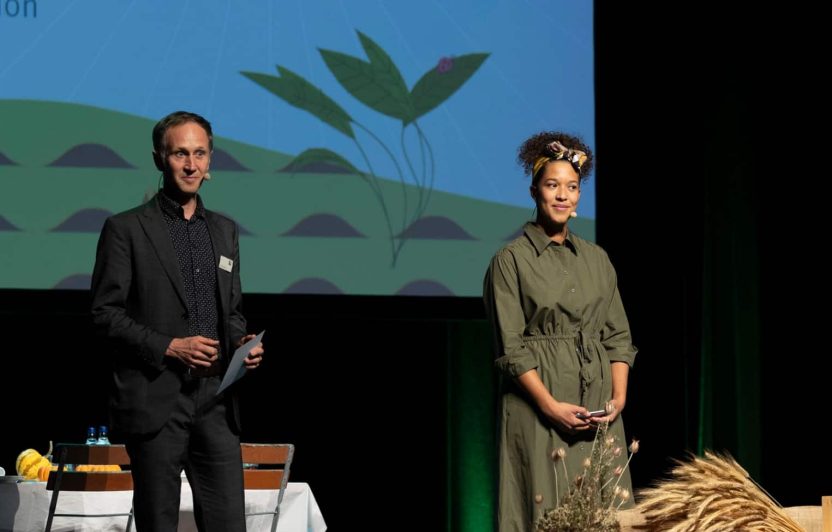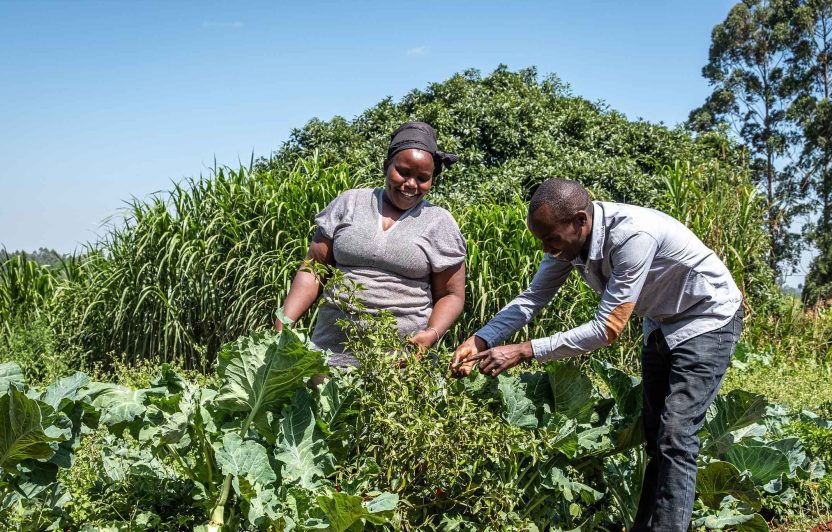Christoph Studer, you recently became a new Biovision Board of Trustees member. How did that come about?
I have been involved with Biovision for several years now. I have served on the programme committee since 2014, so I have helped shape many projects and followed them closely. It all started many years ago, when I first learned about the Infonet, the knowledge platform that Biovision established in Kenya in the 2000s.
Would you elaborate?
As Professor of Natural Resource Management at the School of Agricultural, Forest and Food Sciences (HAFL), a school of the Bern University of Applied Sciences, it is always extremely exciting for me to see how theoretical knowledge can be put into practice. The Infonet provided an interesting approach at the time. After I worked closely with Hans R. Herren on the World Agriculture Report for a short time, one thing led to another, and I became more and more interested and involved in Biovision.
You mentioned your professorship at HAFL. What does your background look like?
I studied agricultural sciences at ETH Zurich. And because I have always been interested in development cooperation, I specialised in agriculture in the tropics, particularly in arid regions. After my doctoral thesis on the use of water for agriculture in arid regions, I was able to join the international agricultural research centre ICRISAT in Niger. I worked in agroforestry there for over three years. My wife, also an agronomist, was always alongside me.
What happened next?
After our time in Niger, we went to ICARDA, the International Centre for Agricultural Research in Dry Areas in Syria. There I also dealt with water issues and with how to use water in agriculture as efficiently and productively as possible. Until one day the phone rang – a friend told me that there was a vacancy at HAFL (then still the Swiss College of Agriculture SHL) in Zollikofen near Bern. We were torn about what to do.
Why?
During my time in Syria, I travelled a lot. I was able to go to different countries, which was of course extremely exciting, but it didn’t allow me much time for my family. I also knew how rare such job offers are in Switzerland. It really was a one-time opportunity to engage in my interests and share my experiences. So we decided to move back to Switzerland. In hindsight, it was a lucky break.
Why?
Because I don’t just teach at HAFL; I also get to do a lot of research and consulting. It’s always exciting for me to be out in the field, working with farmers but also with political decision-makers. At HAFL, I can go into the classroom after research or consultancies and share my experiences and photos directly with the students. That’s a wonderful way to teach.
So practical work is very important to you?
Absolutely. The question of how to apply theoretical knowledge in the field has accompanied me through my entire professional life, and it is still a very important part of my work today. That’s why I became aware of Biovision at the time: I had heard about the Infonet and its idea of imparting knowledge.
Why is this aspect so fundamental for you?
Because I think that there is still so much catching up to do. We know so much at this point; we have the most modern high-tech devices and thousands of studies. But actual implementation often doesn’t work. This gap – the discrepancy between theoretical knowledge and practical application – is still far too big.
Why is that?
There are many reasons. The fact is, we need to involve the local population, including decision-makers, even more. We need to learn from each other.
Can you explain that more?
One important and good development, for example, is the approach of co-producing knowledge, in which the experience and knowledge of various stakeholders form the basis for developing joint innovations. This involves working intensively with the people who will then actually apply the measures in practice. It is crucial that all stakeholders are involved, that they contribute their views and opinions, and that the best possible applications are found together, from which the users can select the most suitable ones for them and adapt them as needed. These approaches are great. They are particularly close to my heart and are one of the reasons why I am involved with Biovision.
How so?
Biovision has always used a dual approach. One side of this approach is working at the political level to change policy frameworks and strengthen agroecology. The other is working at the grassroots level, in intensive and close cooperation with farmers. I am convinced that we must not lose sight of either side if we want to overcome the challenges of the future. And I am convinced that this is also in the interests of our donors.
Speaking of challenges: What do you think are the biggest challenges for the future?
I think that we still have a huge amount of work to do at the consumer level. If nobody demands sustainably produced food, then the system is inherently unsustainable. This needs customers but also appropriate markets and suitable frameworks, which requires promoting awareness of sustainability.
What is the best way to achieve this?
We need one thing above all: concrete examples that provide a guiding light and clear facts and figures of how agroecology works, and that this kind of agriculture has a completely different impact on the environment and people than conventional methods of production. I am very happy that Biovision attaches great importance to monitoring and checking whether knowledge is being applied efficiently and if the desired effects are being achieved.
So awareness-raising work and monitoring are very important points?
Without a doubt. It is important to make people realise that industrial agriculture often creates enormous costs for society, the environment and the climate. Biovision has long recognised this: only once we get civilians on board with clear numbers and statistics can we influence the market. This is a decisive factor.
Why?
Because consumers can provide the impetus for markets to develop. Ultimately, this also leads to decision-makers getting involved and changing the frameworks so that real change is possible and encouraged.

Prof. Dr. Christoph Studer
Member of the Board of Trustees since the end of 2023.





